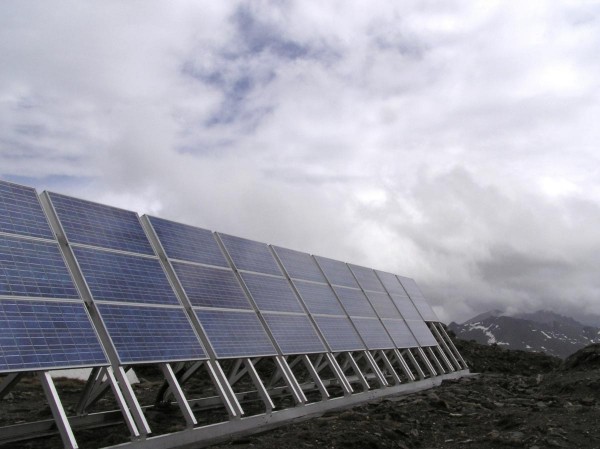
Advertisement
Like his Trans Pacific Partnership agreement, the devil is in the details of the so-called “climate change” agreement President Obama “negotiated” with other nations in Paris recently.
One of those details hidden from the public is the overall cost of the plan. As reported by The Daily Caller, those costs are going to be astronomical: $12.1 trillion over the next quarter century, and that figure was calculated by environmental activists and a Left-leaning news organization, both of which couldn’t care less about the overall costs to the economies of the nations involved.
Bloomberg Business noted further that the $12.1 trillion figure was “the conclusion of a report setting out the scale of the challenge facing policymakers as they look for ways to implement the Paris Agreement that in December set a framework for more than 195 nations to rein in greenhouse gases.”
The findings were determined by Bloomberg New Energy Finance and an environmental group, Ceres, adding that “the required expenditure averages about $484 billion a year over the period.”
That’s almost as much money as the federal government spends on defense, which for Fiscal Year 2016 is expected to be in the neighborhood of $580 billion. Indeed, the required annual spending for this plan is more than three times what China spent on its military in 2014 ($131.57 billion).
The DC noted that the Bloomberg/Ceres figures were probably low, because they don’t include energy efficiency requirements that are only going to add to the overall cost. In fact, the amount it may take to meet the global carbon dioxide reduction goals may even be as high as $16.5 trillion, when energy efficiency requirements are included, according to projections by the International Energy Agency.

Putting these figures in context, the U.S. government is nearly $19 trillion in debt, and only produced some $17.4 trillion in gross domestic product in 2014.
What is particularly galling about this agreement and its associated costs, is that there are other expenditures foisted upon taxpayers dealing with the issue of climate change – which, by the way, has never been definitively linked to man’s industrialization. For example, American taxpayers are on the hook every year for about $39 billion on average to support solar-powered energy. A report by the Taxpayer Protection Alliance also notes that President Barack Obama’s 2009 stimulus contained some $51 billion in subsidies for so-called green energy projects; that included funding for failed solar energy firms like Abound Solar and Solyndra.
As further reported by The Daily Caller:
Solyndra was given a $535 million loan guarantee by the Obama administration before filing for bankruptcy in 2011. Abound Solar got a $400 million federal loan guarantee, but filed for bankruptcy in 2012 after making faulty panels that routinely caught fire.
The Obama administration – and, to be fair, with congressional approval of budgets – has been most generous to the green industry, much more generous than the green industry has been to the country. Despite the healthy investment of taxpayer funding, solar power actually accounts for less energy (0.4 percent) annually than does wind power (4.4 percent), according to the Energy Information Administration. And all of this at a time when fossil fuels are at near record lows.
As for the Paris accords, analysts are betting that renewables like solar and wind will continue to be winners, garnering hundreds of billions in “investment” each year, as signatory nations to the climate deal work to comply with its requirements. Notes Bloomberg Business:
The required expenditure averages about $484 billion a year over the period, compared with business-as-usual levels of $276 billion, according to Bloomberg calculations. Renewables attracted a record $329 billion of investment in 2015, BNEF estimates.
This, on top of Obama’s new EPA regulations that target clean coal plants in the U.S., and energy for Americans and the rest of the poverty-stricken world will be affordable only to the elitists who brought such rules and agreements to us.
Sources:
IEA.org[PDF]
Submit a correction >>
This article may contain statements that reflect the opinion of the author
Advertisement
Advertisements















